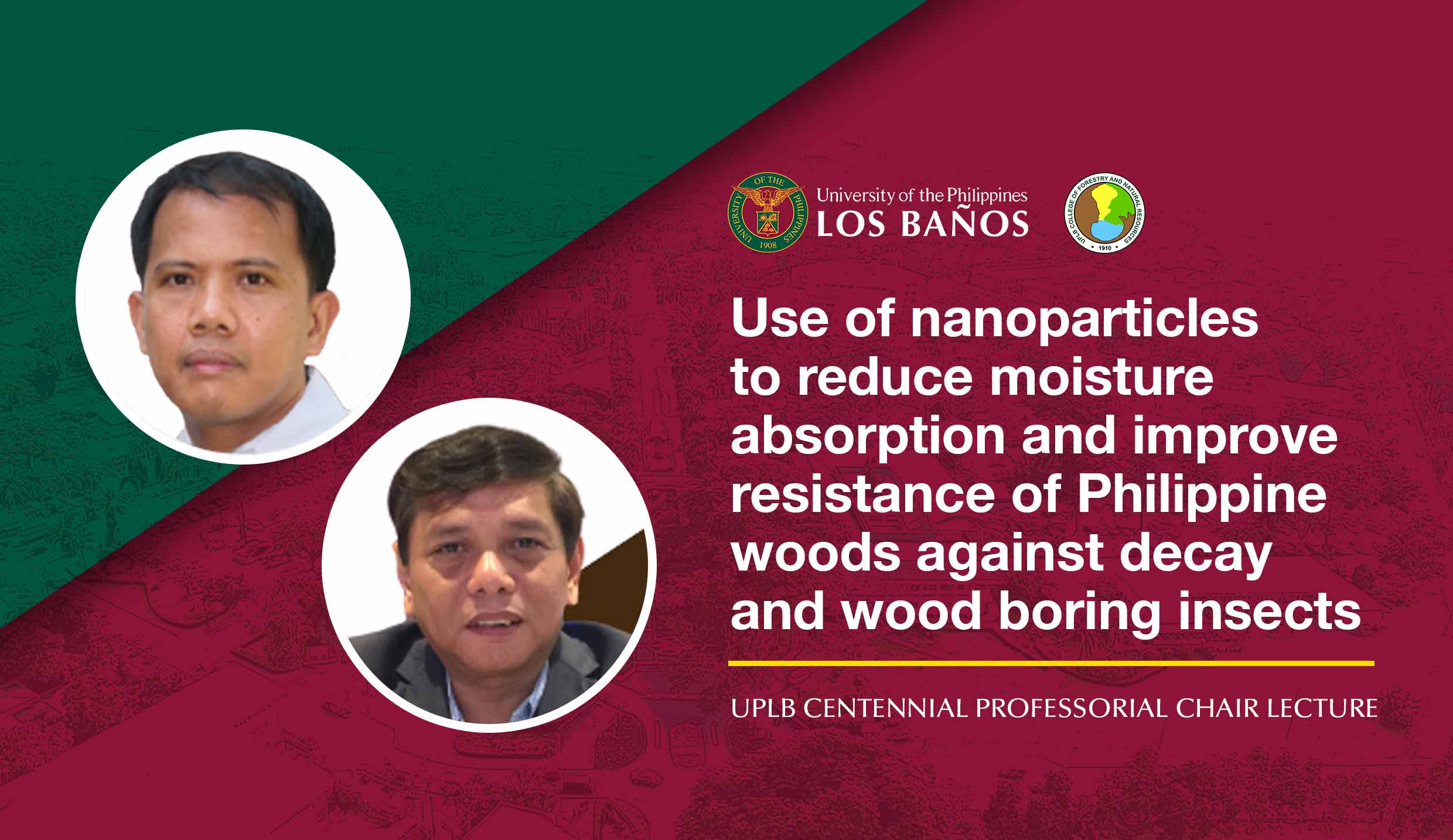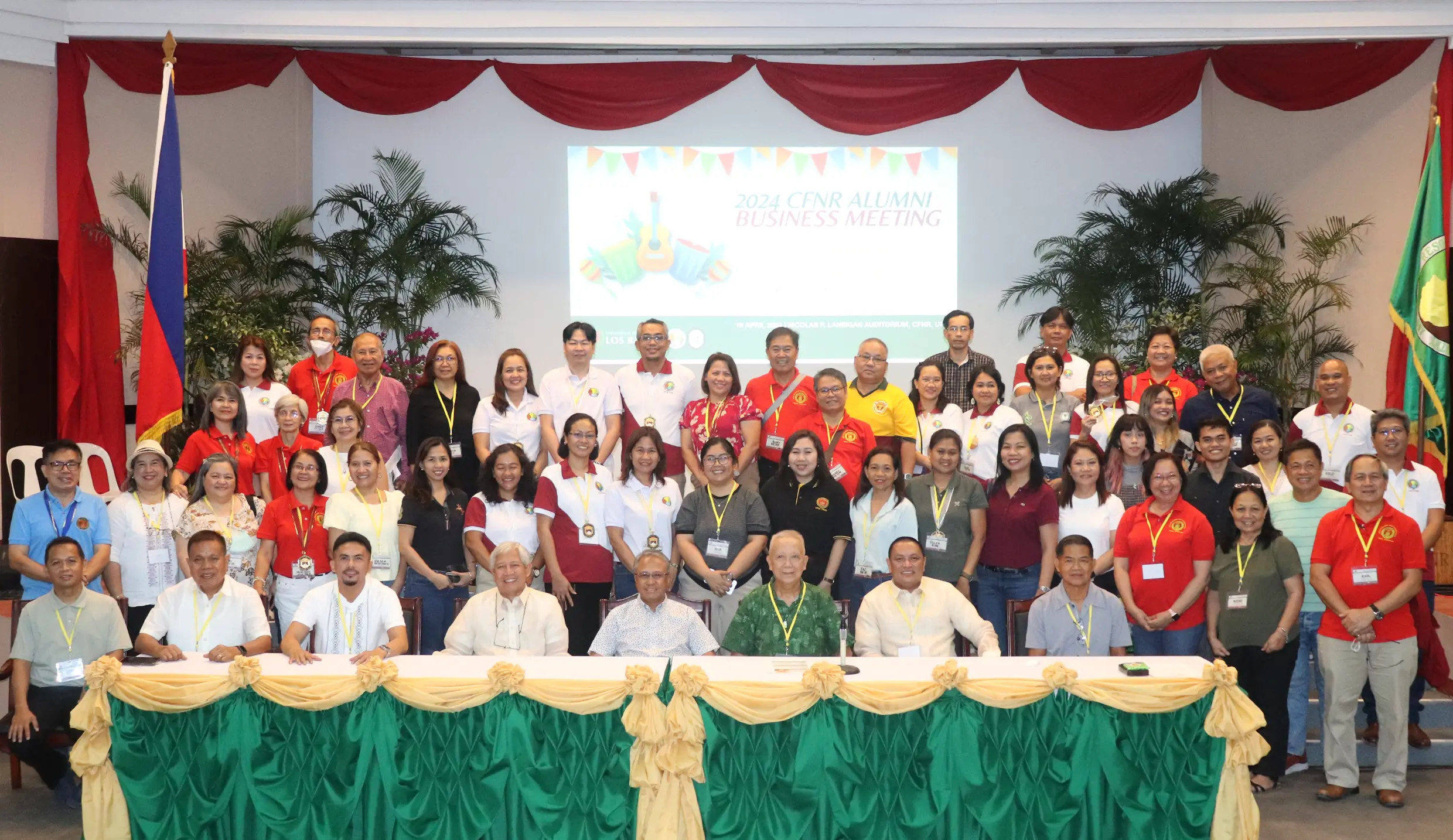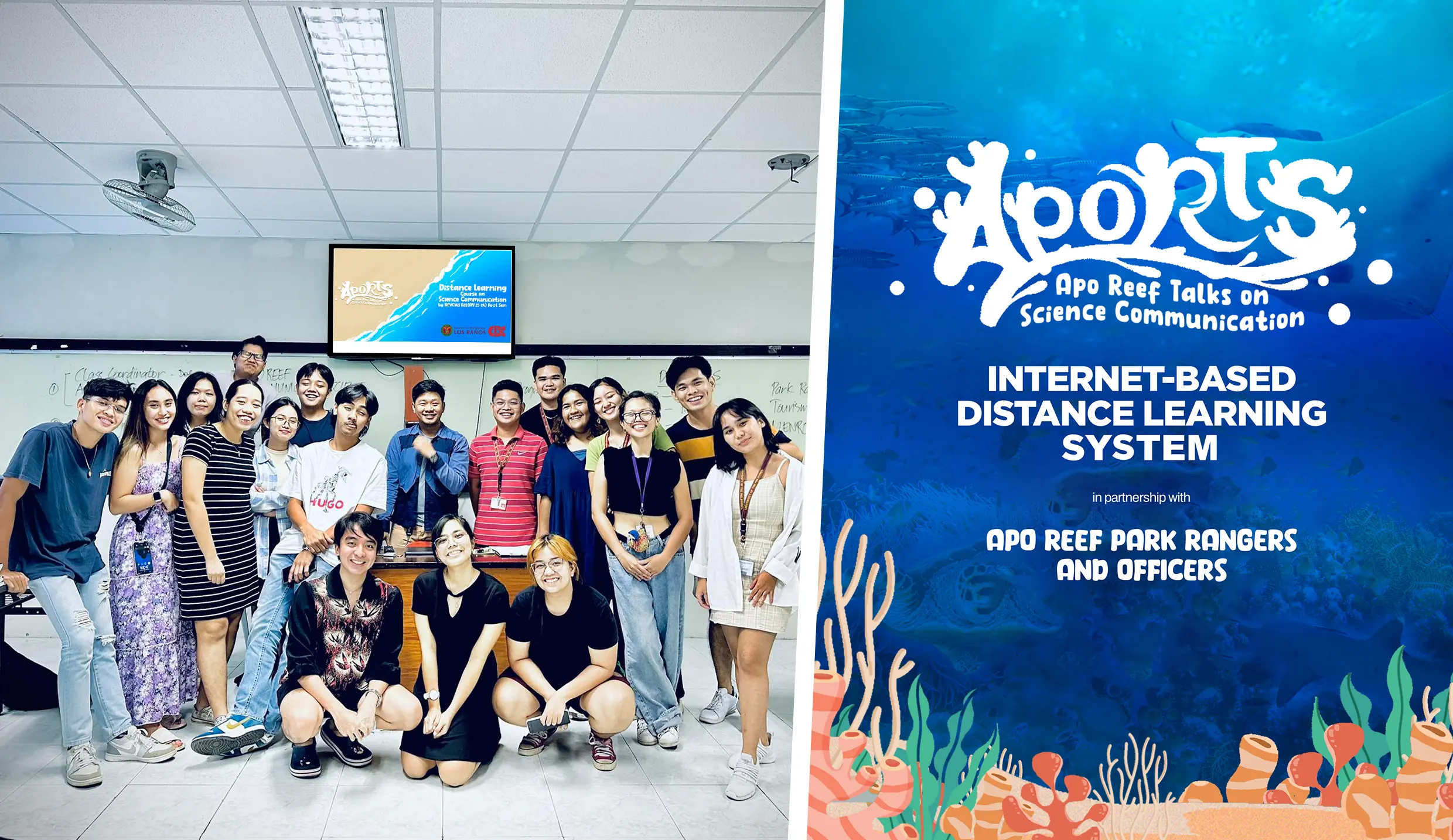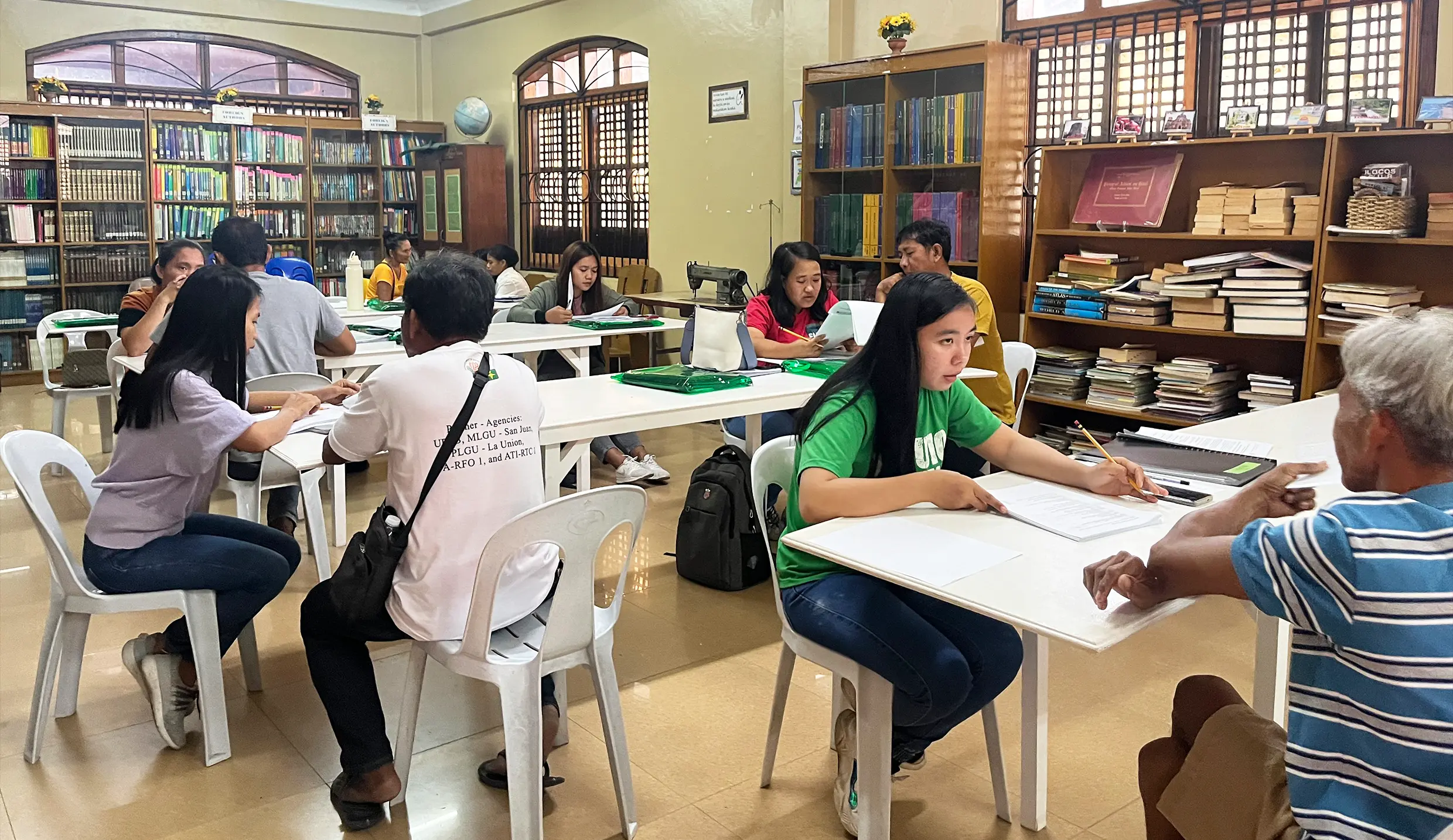
Nanomaterials can be used to improve the properties of wood products.
This is the finding of a research conducted by Dr. Menandro N. Acda, a professor at the Department of Forest Products and Paper Science of the College of Forestry and Natural Resources (CFNR-DFPPS).
Dr. Acda presented his research finding in a lecture on May 25 on the “Use of Nanoparticles to Reduce Moisture Absorption and Improve Resistance of Philippine Woods against Decay and Wood Boring Insects.”
The UPLB Professorial Chair is awarded to faculty members who have shown consistent exemplary teaching and research performance in their respective fields.
In the first part of the lecture, Dr. Acda said that he was able to synthesize a coating for wood to mimic the “lotus-leaf effect.” The goal is to improve the water resistance of wood and make it comparable to lotus leaves, where water does not adhere. This increased water resistance prevents water-facilitated decay and weathering.
To produce the coating, clay nanoparticles (nanoclay) were used, along with other components. Contact angle measurements showed that applying nanoclay coating on Narra and various other wood species significantly decreased surface wettability, almost reaching ultrahydrophobicity or the state that makes surfaces extremely difficult to wet.
In the second part of his lecture, Dr. Acda presented the use of metal-oxide nanoparticles to improve termite resistance. Based on his feeding bioassay, applying copper oxide and zinc oxide nanoparticles inhibited termite activity, effectively protecting and preserving the wood.
Dr. Acda is a highly recognized scientist in wood materials science, bio-based composites, and tropical termite biology and control. He is the only Filipino recipient of the prestigious Charles Lindbergh Research Grant and was included in the Asian Scientist 100 list in 2017. He is also the inventor of LaharGard®, a termite barrier using volcanic debris, and the Featherboard®, a keratin fiber cement composite.
The Professorial Chair Lecture was held via virtual conferencing. Dean Marlo D. Mendoza of CFNR gave the opening remarks, expressing enthusiasm about seeing more studies on using nanotechnology in forest product utilization.
Dr. Rico J. Cabangon, deputy director of the Department of Science and Technology-Forest Products Research and Development Institute (DOST-FPRDI), served as the discussant, giving critique and sharing his insights on the lecture.
Over 150 students, faculty, and staff of UPLB and other state universities and colleges nationwide and staff of the Department of Environment and Natural Resources (DENR), DOST, private companies, and local government units attended the lecture. (GC Acaso and JG Flores, DFPPS-CFNR CIMRC)








